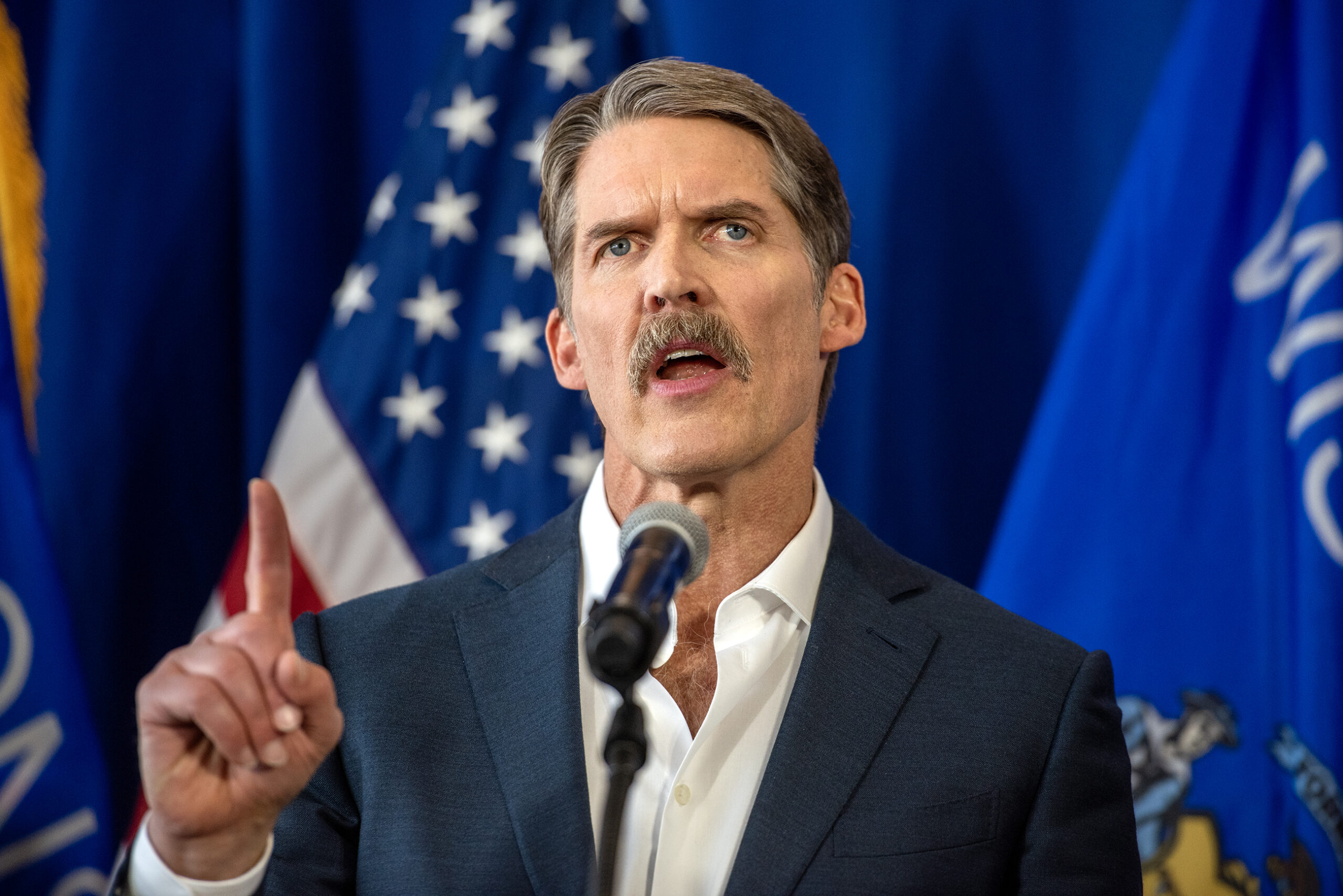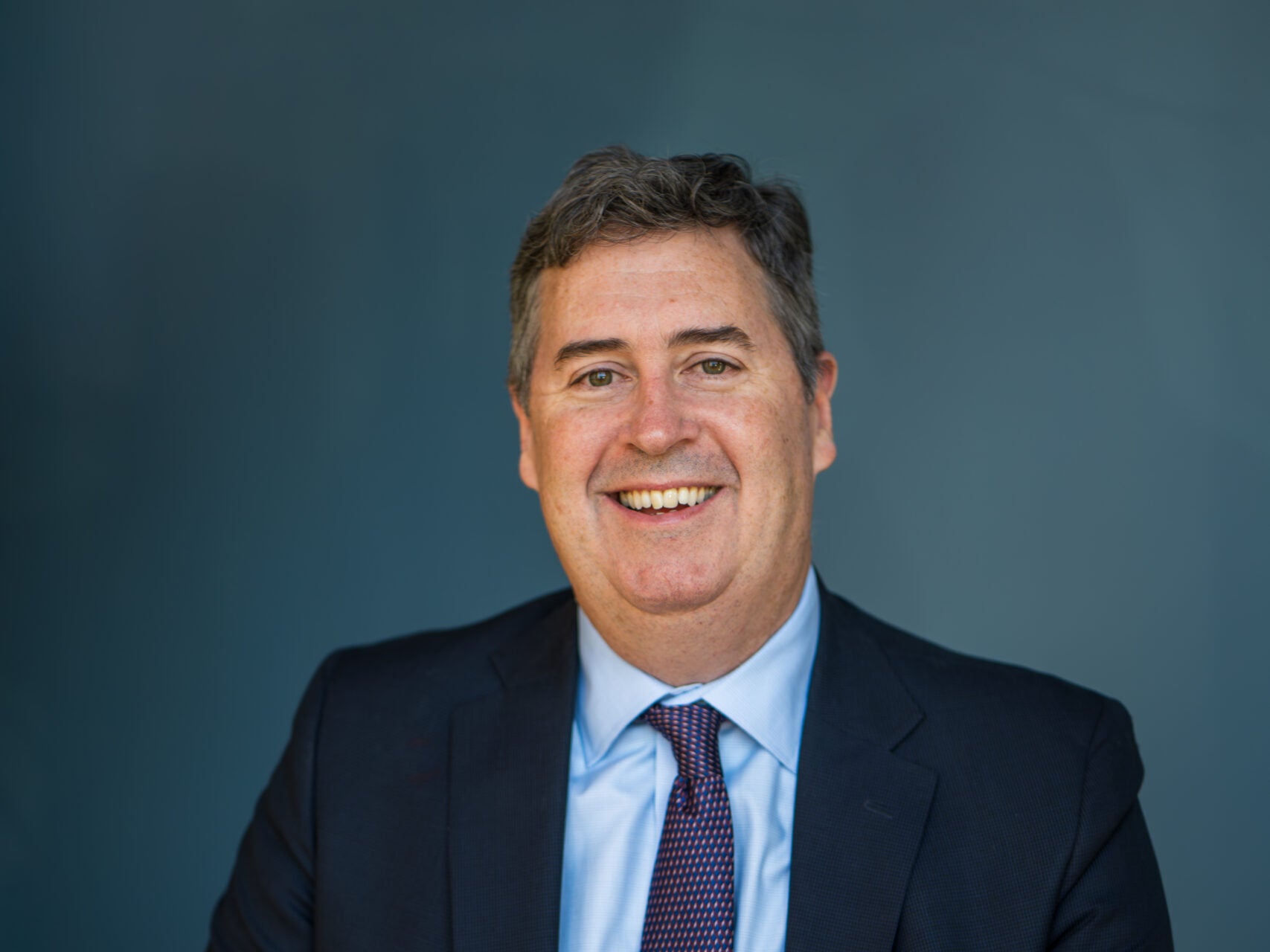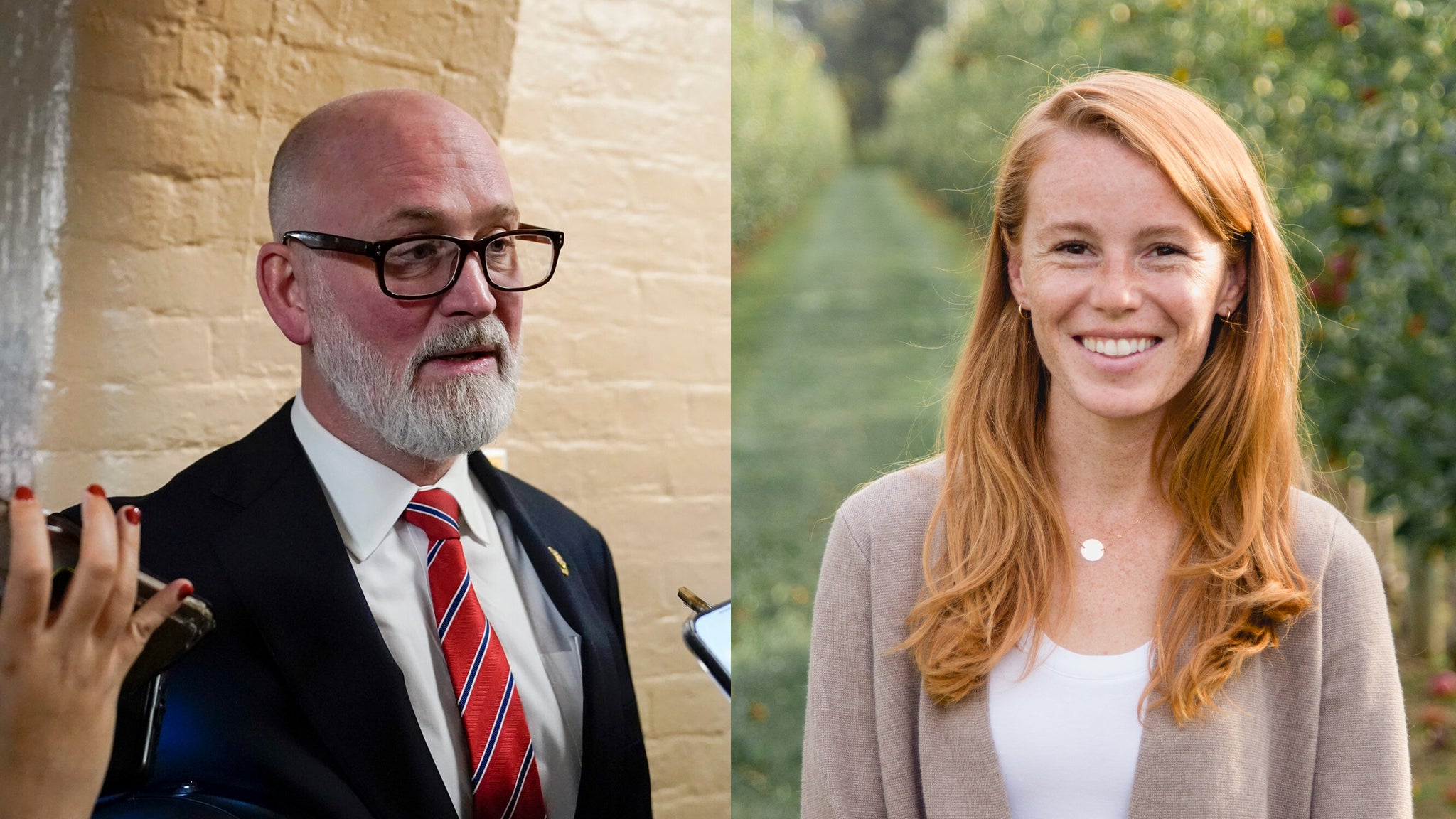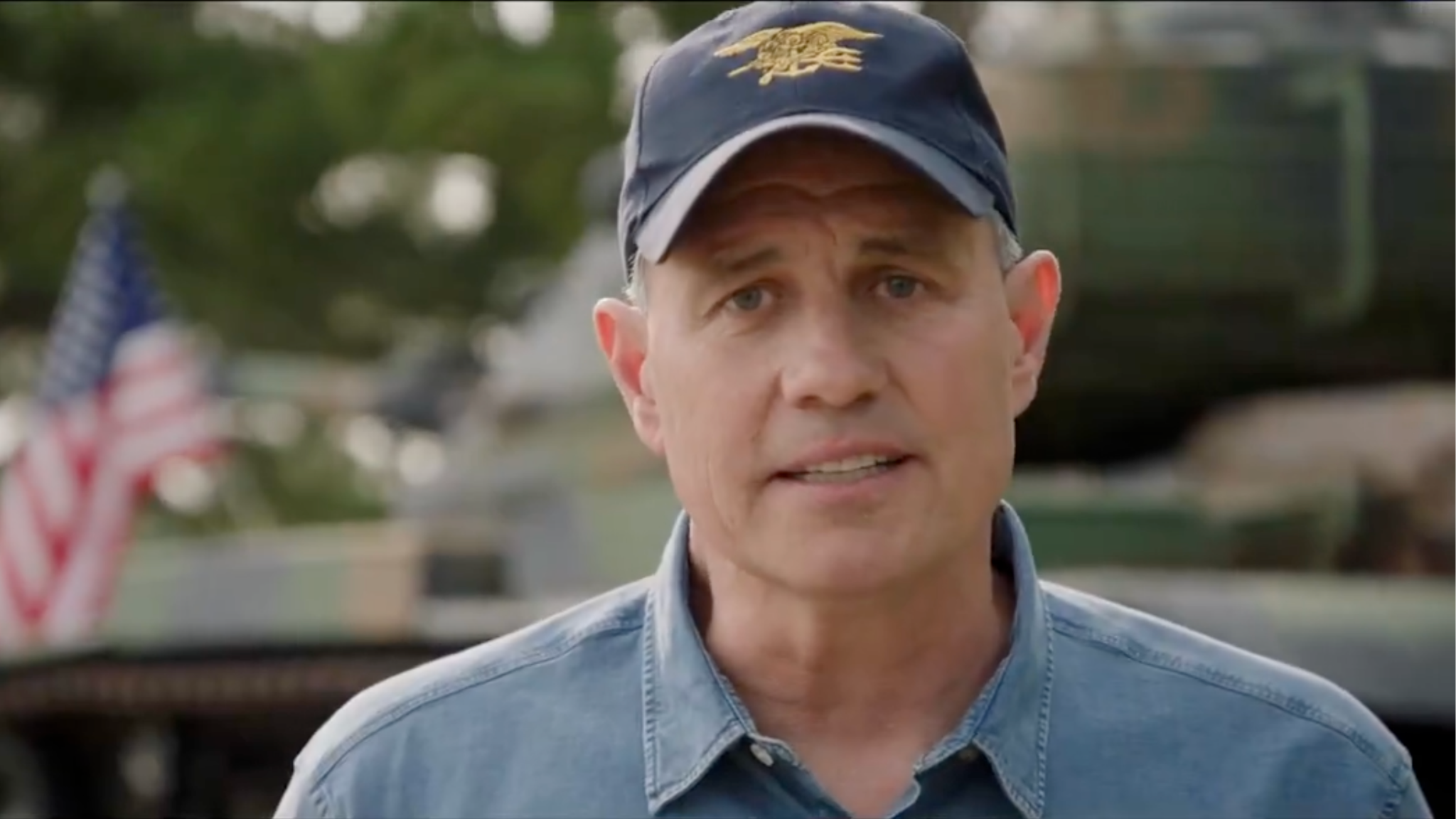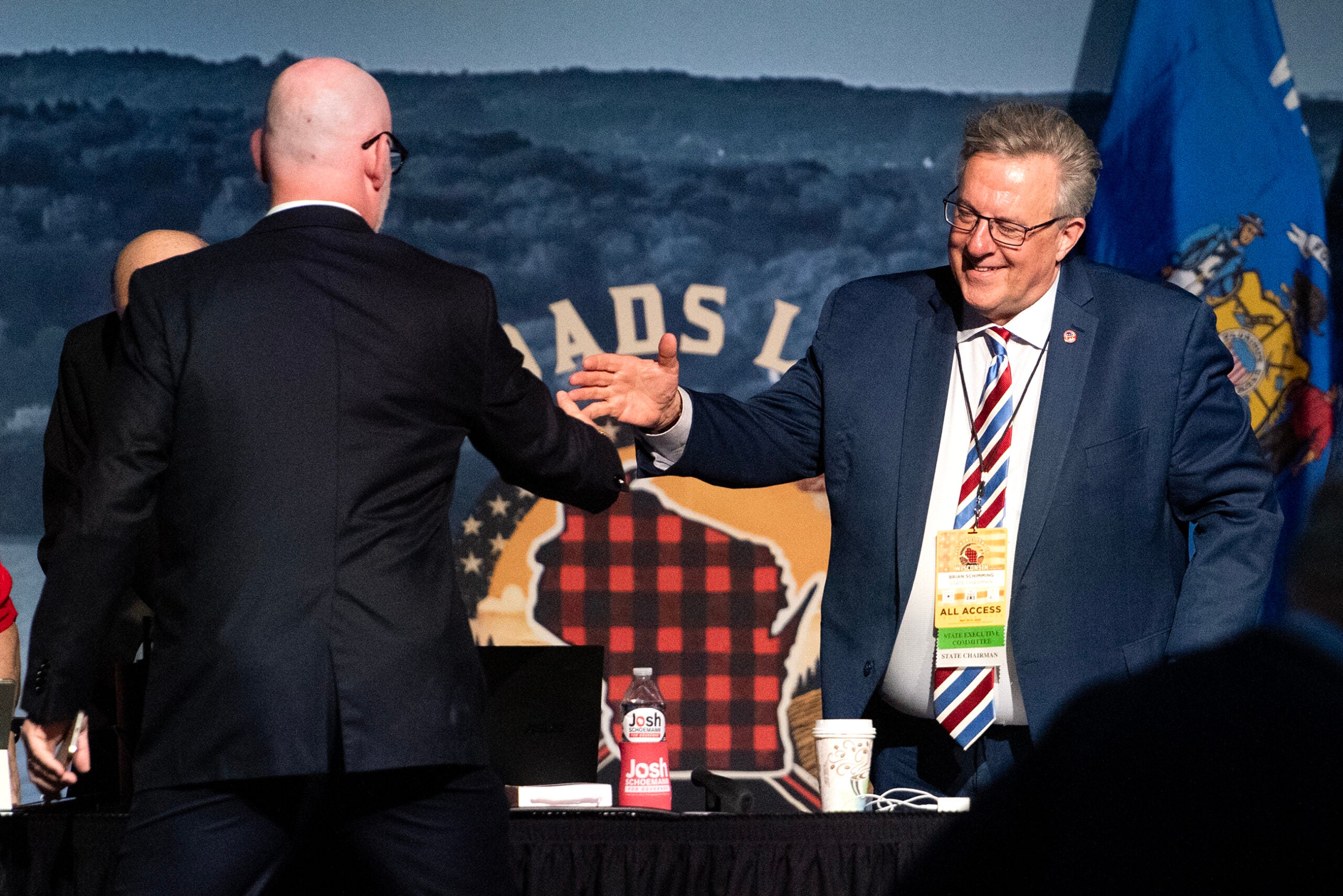With an $8 million loan to his U.S. Senate campaign, Republican Eric Hovde has quickly closed the gap with Democratic U.S. Sen. Tammy Baldwin, becoming the latest example of a self-funder in high-profile Wisconsin election.
The approach, experts say, offers major benefits, but also some drawbacks. Previous self-funders in Wisconsin have had a mixed record, and a few recent examples lost their races.
In the first three months of the year, Federal Elections Commission data shows Baldwin raised $5.4 million dollars and spent $3.2 million dollars. Her campaign finished the quarter with just more than $10 million cash on hand.
News with a little more humanity
WPR’s “Wisconsin Today” newsletter keeps you connected to the state you love without feeling overwhelmed. No paywall. No agenda. No corporate filter.
Hovde’s campaign raised just more than $1 million from Jan. 1 through March 31, which includes maximum contributions from GOP Megadonors Elizabeth and Richard Uihlein. But it was Hovde’s $8 million loan to his campaign that helped him spend $3.7 million during the first quarter. Hovde finished the period with $5.3 million cash on hand.
University of Wisconsin-La Crosse Political Science Professor Anthony Chergosky said Hovde’s loan to his campaign is well timed, because “we find that early money often matters more than late money.”
“Developing name recognition is a significant hurdle for candidates, and candidates need money in order to develop that name recognition,” Chergosky said. “So, if a candidate can spend a lot of money early on in the campaign, it gives them the opportunity to put themselves in front of voters on TV, and on digital advertising and on other forms of advertising.”
In one of his early ads, titled “Can’t be Bought,” Hovde claimed career politicians “sell themselves to special interests and end up working for them and not you” without mentioning Baldwin by name. He then pledged to donate his U.S. Senate salary, if elected, to charity organizations in Wisconsin.
Early money, Chergosky said, combined with the fact that no well-known Republicans have launched a potential primary challenge against Hovde means “Republicans should feel pretty good” at this point in the race.
Downsides to self-funding campaigns
Chergosky said there are potential downsides to self-funding a statewide campaign. He said one of the major hurdles for Hovde and others who self-funded races before him is donors “will, understandably, decline to contribute money to that campaign.”
He said donors have to be strategic, too, when deciding where their money will have the most impact.
“How do you convince someone to donate to your campaign when you are already putting millions of dollars from your own bank account into the campaign?” Chergosky said. “It’s really hard to make that sell to donors.”
There are recent examples of self-funding candidates trying to walk that line in Wisconsin.
In his unsuccessful 2022 bid for governor, Republican Tim Michels poured nearly $19 million of his own money into his campaign. Early on, he ran an ad titled “Not Beholden” in which he stated he would refuse donations from special interest groups and would thus “not owe the swamp a single thing.” Michels also stated he would not accept donations from any individual of more than $500.
But after winning his GOP primary, Michels’ campaign announced it would begin accepting donations of up to $20,000 per person.
Michels eventually lost to Democratic Gov. Tony Evers in the general election.
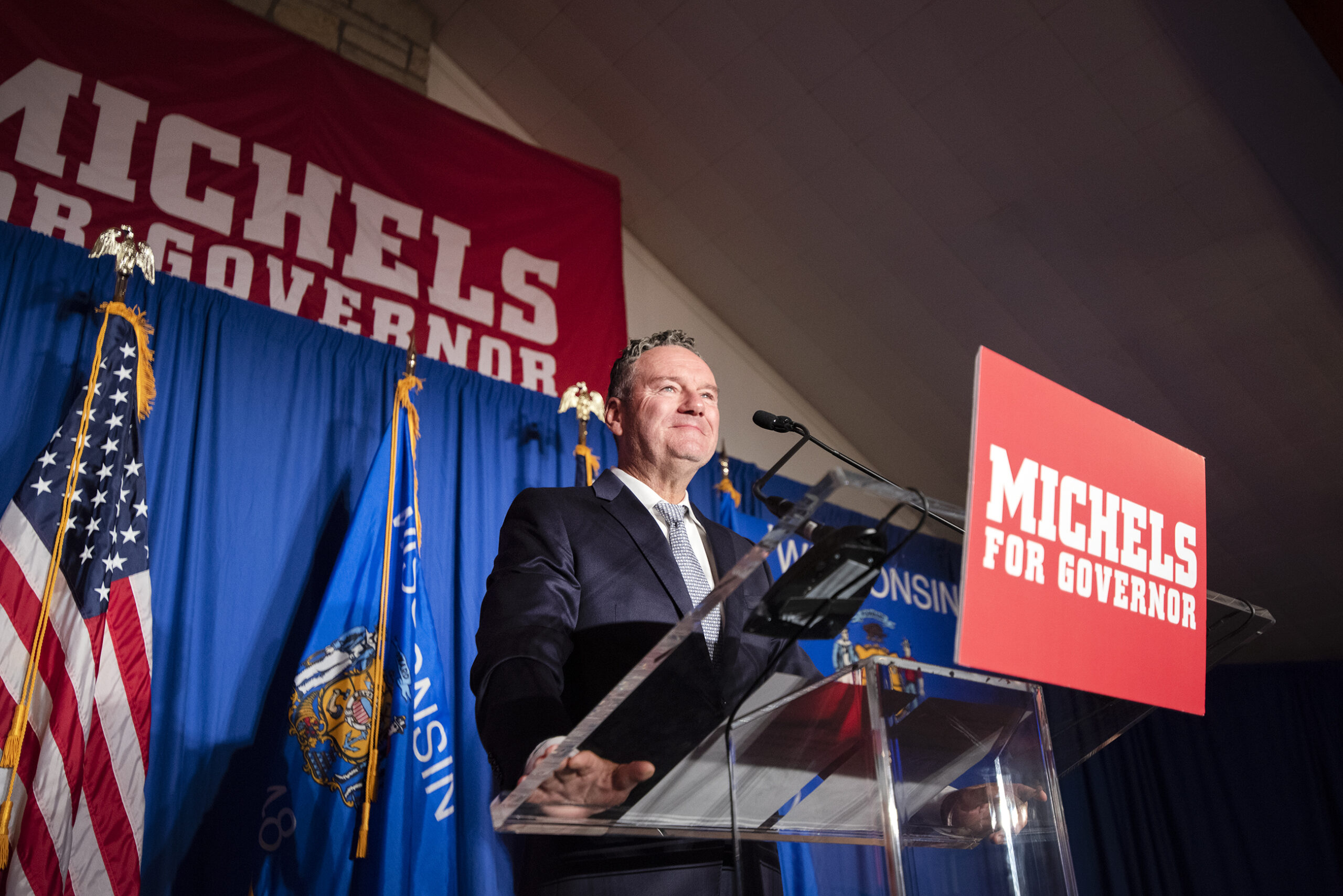
What other candidates have self-funded statewide campaigns?
Hovde and Michels aside, Wisconsin has been home to several wealthy candidates who have donated millions to their own campaigns.
They include former Democratic U.S. Sen. Herb Kohl, who campaigned on the slogan: “Nobody’s senator but yours.” That messaging helped keep him in office from 1989 through 2013, when he retired.
Republican U.S. Sen. Ron Johnson loaned his campaign around $9 million in 2010 when he defeated longtime Democratic incumbent Russ Feingold.
In 2022, two of the leading Democratic candidates hoping to oust Johnson made significant personal loans to their campaigns. All told, Milwaukee Bucks executive Alex Lasry spent nearly $15 million of his own money in his bid while then-Wisconsin Treasurer Sarah Godlewski loaned her campaign a total of around $1.8 million. Both Godlewski and Lasry ultimately dropped out of the race and supported former Democratic Lt. Gov. Mandela Barnes, who narrowly lost to Johnson.
In 2014, Democrat and former Trek bicycle company executive Mary Burke loaned her campaign roughly $5 million in her unsuccessful race against former Republican Gov. Scott Walker.
And in 2012, Hovde loaned his campaign about $5.8 million, only to come in second to former Republican Gov. Tommy Thompson in that year’s U.S. Senate primary.
Nationally, there are numerous examples where self-funded campaigns don’t work out. An analysis by the nonprofit Open Secrets shows 44 candidates across the country spent more than $1 million of their own money on congressional campaigns in 2022. Just six of them won their races.
Early donations signal another expensive campaign
Whether it’s wealthy candidates self-funding their campaigns or an onslaught of donations from special interest groups, Wisconsin Democracy Campaign Executive Director Nicholas Ramos says it’s all part of a bigger problem.
He said when candidates are focused on raising and spending millions to win elections, there’s less time for them to ensure the voices of Wisconsinites are being heard along the way.
“I think after this election cycle, when we see the record spending that we’re on track to see once again, we’ll have more conversations about what it would look like to reform campaign finance laws in Wisconsin,” Ramos said. “But until then, I mean, we’re just it’s going to be the Wild West.”
Wisconsin Public Radio, © Copyright 2025, Board of Regents of the University of Wisconsin System and Wisconsin Educational Communications Board.

